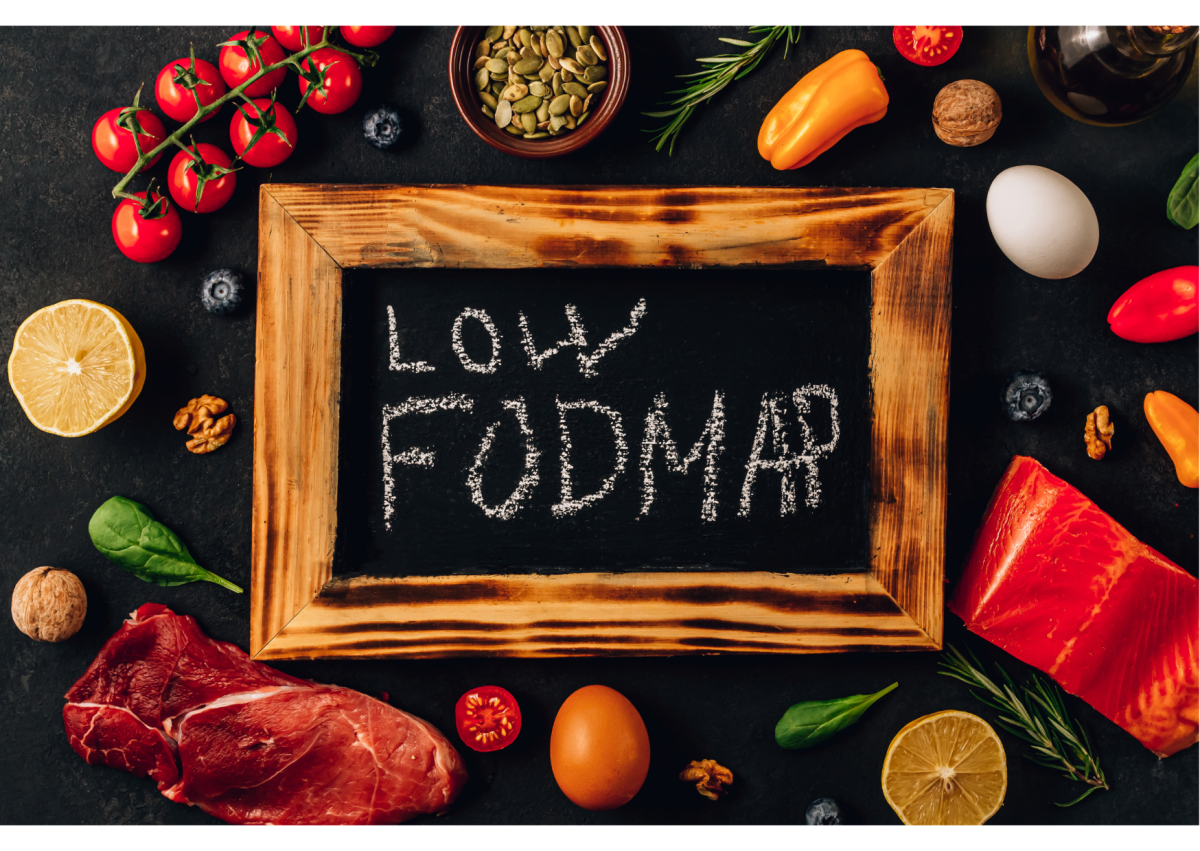Can IBS cause weight loss?
- Dietary Advice (non Low FODMAP)
Amidst the array of symptoms, one question frequently arises: Can IBS cause weight loss?
While shedding the pounds might be the goal for some, it can also be very stressful if you don’t know what’s causing it or how to manage it.
This article explains whether IBS can cause weight loss and what else might contribute. We also give you our top tips for avoiding unwanted weight loss (while managing your IBS symptoms!).

What causes weight loss?
Consuming fewer calories than your body needs for energy can lead to weight loss.
Calorie reduction can occur intentionally through dieting or unintentionally due to reduced appetite, being scared to eat foods or following a restricted diet.
Certain medical conditions can cause unintentional weight loss through interference with nutrient absorption or increased nutrient losses e.g. celiac disease.
Other conditions such as hyperthyroidism, diabetes, cancer, or infections can also lead to weight loss due to metabolic changes, increased energy expenditure, or loss of appetite.
Can IBS cause weight loss?
IBS will not cause weight loss, unlike other untreated gastrointestinal conditions such as Crohn’s disease, ulcerative colitis, or celiac disease.
However, some of the IBS symptoms you experience and the lifestyle habits you might try to manage day-to-day may contribute to not eating enough and, therefore, losing weight.
If you are experiencing unexplained weight loss (without reducing your calorie intake), you should see your doctor for investigations, as this could be a sign of other conditions.
How restrictive diets in IBS management cause weight loss
It is relatively common for people with IBS to avoid multiple foods long-term, even whole food groups, in an attempt to manage symptoms.
This can lead to weight loss, as it is hard to meet your body’s calorie needs when you cut out too many foods and your diet is overly restrictive.
You also risk missing out on other essential nutrients your body needs to maintain health when you cut out entire food groups.
For example, a diet that eliminates carbohydrates may lead to insufficient fiber, vitamins, and minerals in foods like fruits, vegetables, and whole grains.
Overly restrictive diets can lead to weight cycling, where individuals repeatedly lose and regain weight, which is associated with negative health outcomes (1).
Restrictive diets can also make socializing or enjoying meals with family and friends challenging, as they often involve avoiding certain foods or eating in a very specific way.
This can lead to feelings of isolation and disconnection from social activities centered around food.
Weight loss on the low FODMAP diet
You may find you lose weight on a low FODMAP diet as you have taken too many foods out of your diet rather than focusing on suitable swaps.
This approach then will lead to a reduction in calorie intake.
If you follow the low FODMAP diet correctly, under the guidance of a registered dietitian, you should be able to maintain your weight.
Although the restriction phase of the low FODMAP diet is, unsurprisingly, restrictive, it is only four weeks long, and you will be surprised at the number of foods you can still enjoy!
As you reintroduce foods, maintaining or gaining weight may become easier as you will have an even larger variety to choose from.
One of the common mistakes when following the low FODMAP diet is only following portion sizes rated green on the Monash app.
Following amber portion sizes will allow more variety of foods but still avoid your symptoms.
Learn about other common mistakes people make on the low FODMAP diet in our blog: 10 low FODMAP diet mistakes.

Mental health, IBS, and weight loss
Mental health conditions such as anxiety and depression can sometimes lead to weight loss.
With debilitating symptoms and potentially many triggers in day-to-day activities such as eating out, the high levels of mental health conditions in people with IBS are unsurprising.
Research suggests that many people with IBS experience anxiety and depression, up to 40% in some studies (2, 3).
In the table below, we have summarized some of the common symptoms of anxiety and depression, some of which can lead to weight loss.
| Common anxiety symptoms | Common depression symptoms |
| Sweating | Low mood |
| Shaking/trembling | Low energy |
| Nausea | Difficulties finding motivation |
| Restlessness | Disturbed sleep |
| Palpitations | Losing interest in things |
Some symptoms, such as nausea and low energy, may mean you feel less able to prepare or eat certain foods or large enough portions to maintain weight.
Other symptoms, such as shaking and restlessness, can increase calorie expenditure, contributing to weight loss if calorie intake remains stable or decreases due to appetite changes.
Eating habits may also be affected by low mood or motivation or lack of interest in food, meaning it may be difficult to eat a balanced diet with enough calories for your needs.
In these situations, treating the underlying mental health condition (and IBS symptoms if these are playing a role in the way you feel) could help to manage your weight.
Our blog Stress, Depression, Generalised Anxiety Disorder and IBS gives you a deeper dive into what you can do to manage these conditions effectively and where to look for support.
5 top tips for increasing your weight with IBS:
- Eat small, regular meals
- Introduce extra low FODMAP snacks
- Avoid drinking large amounts of fluid at mealtimes
- Meal plan ahead of time to avoid skipping meals
- Take time out to relax to reduce stress-induced symptoms
Summary
Although IBS itself does not cause weight loss, people with IBS may lose weight as a result of eliminating certain foods from their diet or developing anxiety around food.
A registered dietitian can support you on the low FODMAP diet (to manage your IBS symptoms) while being mindful of your weight and ensuring you eat enough to stay fit and healthy.
However, please note that if you are experiencing unexplained weight loss, you should consult a doctor to rule out other underlying conditions.